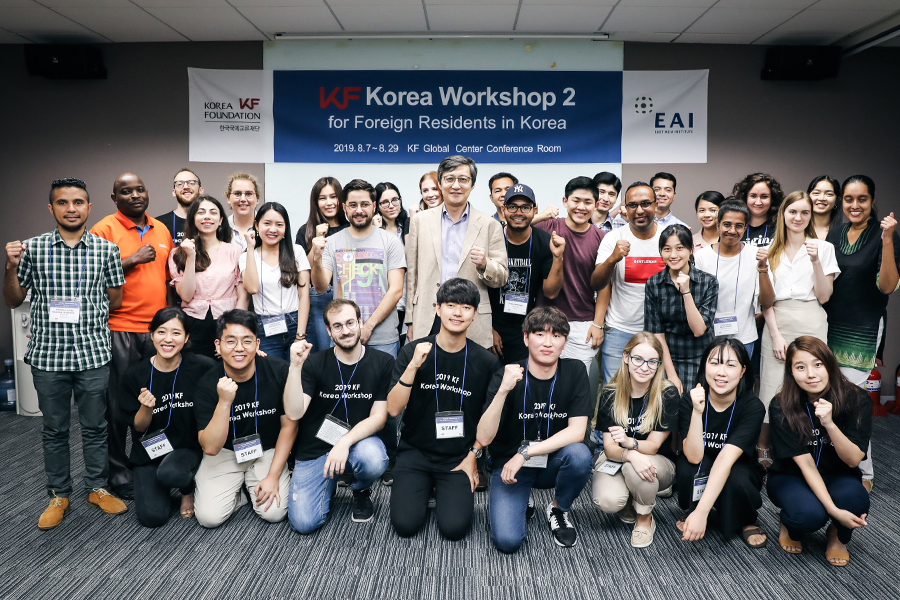![[KF Korea Workshop 2] Korean Diplomacy and Security](../images/bg_tmp.jpg)
[KF Korea Workshop 2] Korean Diplomacy and Security
Events | 2019-08-08
The KF Korea Workshop is hosted by the Korea Foundation(KF) and organized by the East Asia Institute(EAI) to promote and share understanding of Korean social, political and economic issues among international residents in Korea.
For the fourth lecture of 2019 KF Korea Workshop 2, Prof. Yul Sohn(President, EAI; Professor, Yonsei University) gave a lecture on “2019 Korean Diplomacy” under the theme of [Korean Diplomacy and Security]. Throughout his lecture, he discussed ① U.S.-China Strategic Competition, ② Anti-globalization and Populism, ③ Nationalism and Identity, ④ Korea’s Strategy.
① U.S.-China Strategic Competition
Prof. Sohn explained that a “world leadership cycle” occurs every century. With this pattern as the basis, he analyzed the current U.S.-China dynamic with China as the “rising power” and the U.S. as the “existing power.” He suggested that China is likely to catch up to the U.S. in terms of GDP and military power, leading to heightened tensions between the two powers. Prof. Sohn also outlined the Korean Peninsula, Taiwan, the East and South China Seas as central regions of conflict for the U.S. and China.
② Anti-globalization and Populism
For the second part of his lecture, Prof. Sohn discussed the emergence of anti-globalization sentiments and populism beginning with the 2008 global financial crisis. He discussed how Korea, as an export-led nation, is being influenced largely by the surge in anti-globalization and populist movements. Prof. Sohn highlighted (1) the U.S. risk (Trump), and (2) the China risk as two large threats regarding trade protectionism.
③ Nationalism and Identity
Prof. Sohn continued his lecture by discussing immigration and nationalism. He referenced to recent events such as the rise of economic nationalist movements in the West and the widespread emergence of radical leaderships. For Korea, he alluded to various history problems that have resurfaced such as those addressing forced laborers and comfort women from the Japanese colonial era. In doing so, Prof. Sohn emphasized that the comfort women issue not only addresses gender problems, but is also intertwined with the clash of identities between Korea and Japan. Yet he stated that an actual clash between the two nations is unlikely because (1) Korea and Japan share mutual security concerns including the North Korea problem, (2) despite economic tensions, the two countries share mutual economic benefits and values including free trade policies, (3) the potential for Korea and Japan to culturally clash is very low. Finally, Prof. Sohn suggested that Japan may identify China as an enemy but that the Korean public is divided in their perception of China.
④ Korea’s Strategy
According to Prof. Sohn, Korea is facing a continued dilemma in terms of “Which position to undertake in between the U.S. and China.” Therefore, one of the most important agendas for Korean diplomacy is securing the nation’s position amidst U.S.-China tensions. Furthermore, he suggested that the North Korea problem is not only a concern for the Korean Peninsula, but also an important region for both the U.S. and China.
⑤ Conclusion
To conclude his lecture, Prof. Sohn emphasized that Korea should (1) avoid leaning overtly towards neither U.S. nor China, (2) contribute to the maintenance of international rules, norms and values, (3) overcome nationalistic sentiments that may override its diplomatic interests.
During the Q&A session, Prof. Sohn addressed student questions and comments concerning the current Korea-Japan conflicts, and Japan’s position related to the Korean Peninsula.
|
Theme |
Lecture Series |
Dates and Times |
|
Korean Enterprises |
"K-Drama and Entertainment" |
8/7(Wed) 13:00-15:00 |
|
Korean Politics |
"Korean Democracy: Challenges and Development" |
8/7(Wed) 15:30-17:30 |
|
Korean Mass Media |
"Journalism Today and Tomorrow" |
8/8(Thu) 13:00-15:00 |
|
Korean Diplomacy and Security |
"2019 Korean Diplomacy" |
8/8(Thu) 15:30-17:30 |
|
Korean Economy |
"Korean Economy: Present and Future" |
8/9(Fri) 13:00-15:00 |
|
Korean Culture |
"Glimpse of Korea" |
8/9(Fri) 15:30-17:30 |
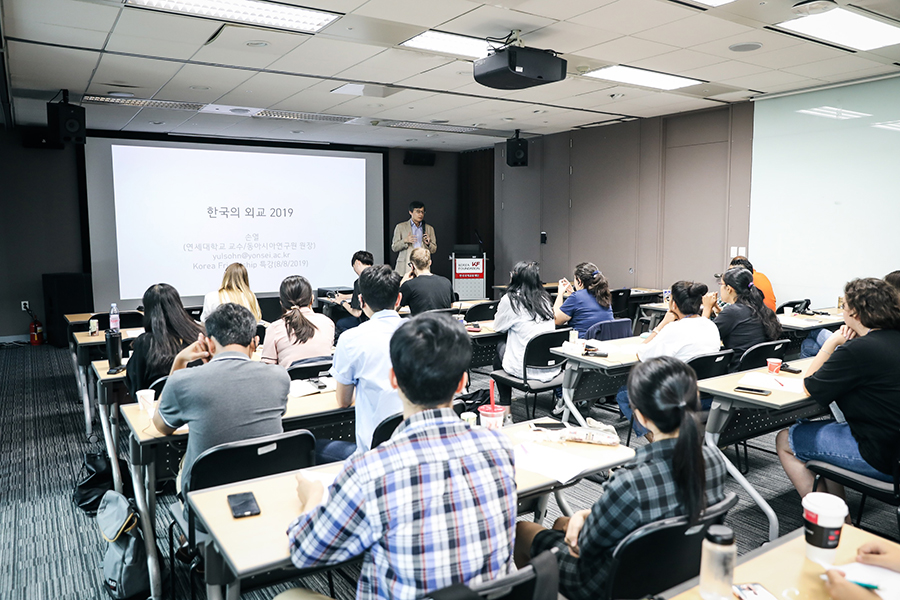
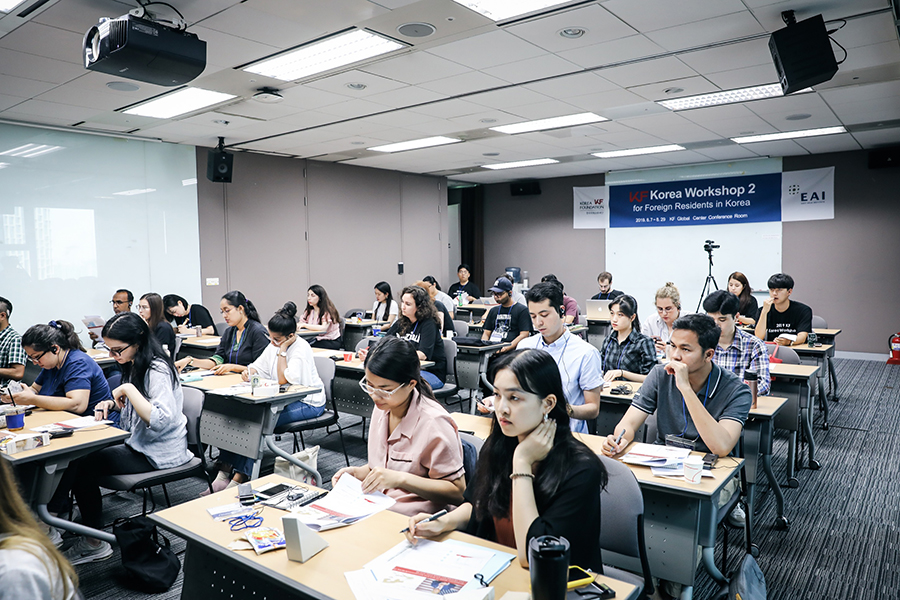
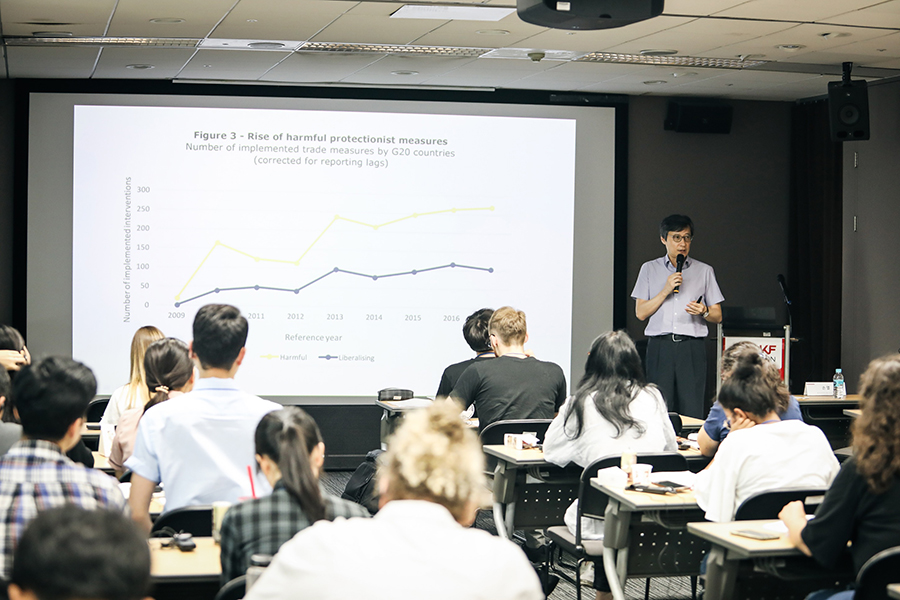
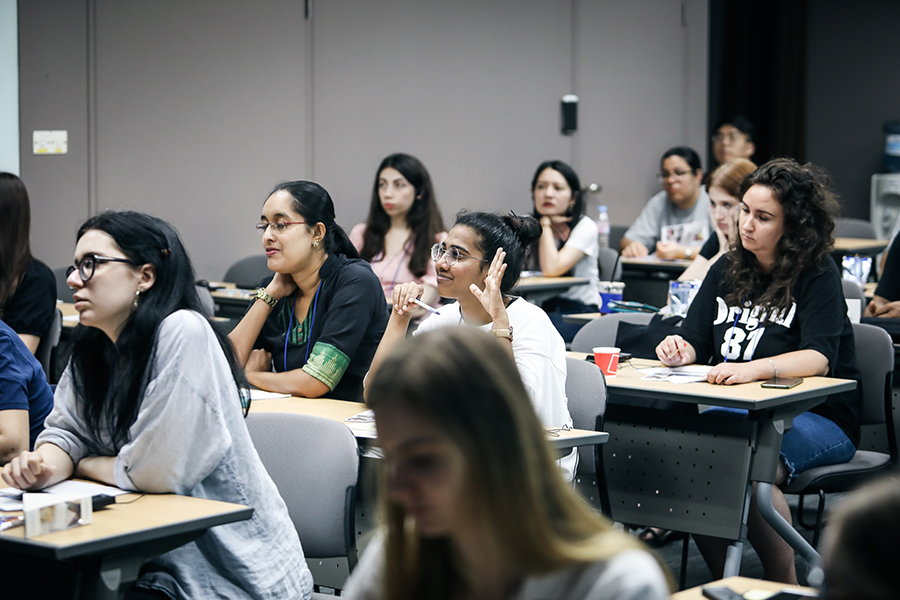
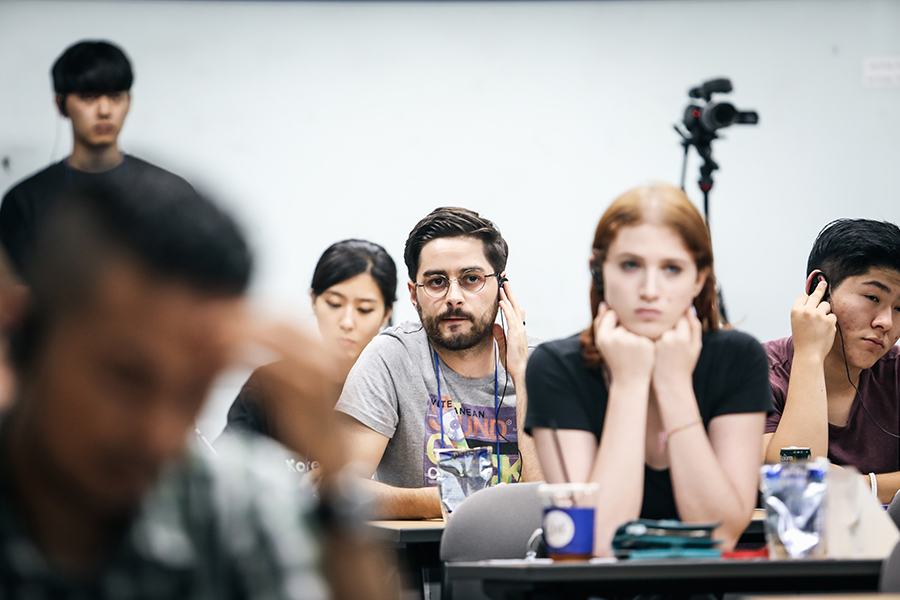
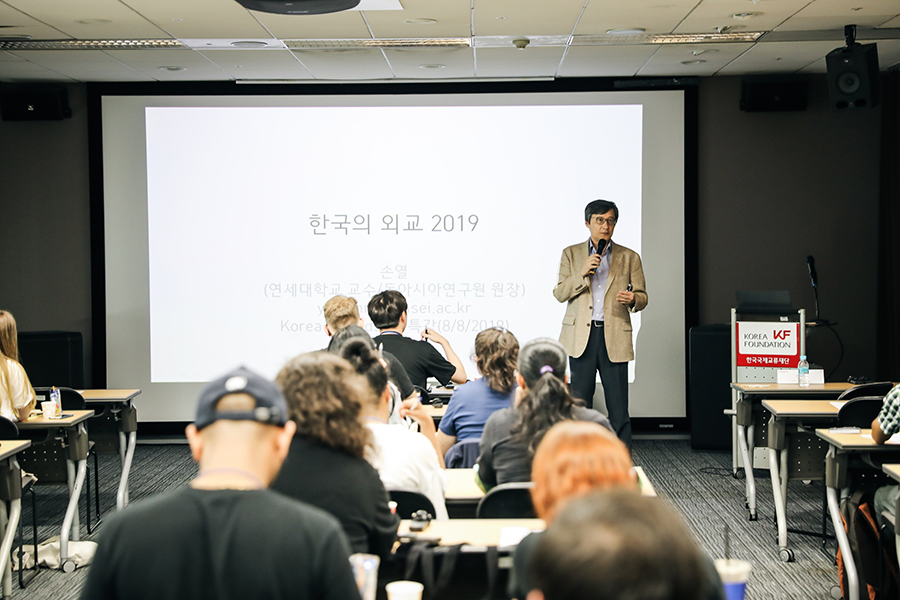 11
11
